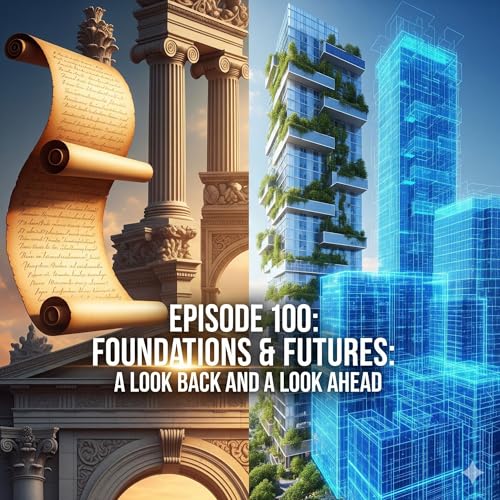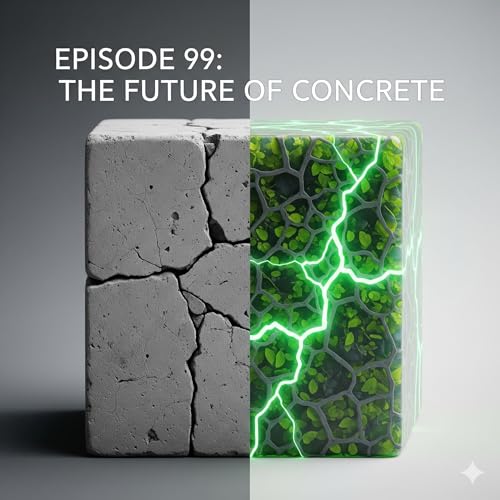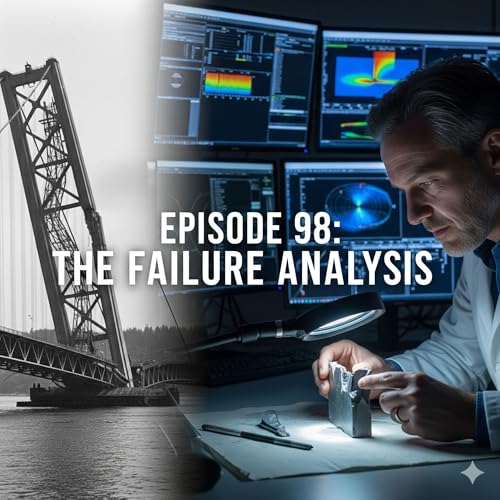
Foundations & Futures: The Story of Construction Best Practices
No se pudo agregar al carrito
Add to Cart failed.
Error al Agregar a Lista de Deseos.
Error al eliminar de la lista de deseos.
Error al añadir a tu biblioteca
Error al seguir el podcast
Error al dejar de seguir el podcast
-
Narrado por:
-
De:
-
Maitt Saiwyer
"Every building tells a story — of vision, materials, and the people who bring it to life. But behind every great structure lies a history of best practices that shaped the way we build today."
In Foundations & Futures, we uncover the seminal books, ideas, and breakthroughs that defined construction across centuries. From Vitruvius and Palladio’s ancient wisdom, to Lean Construction and digital twins, this series explores how builders, architects, and managers turned theory into practice and practice into industry standards.
Each episode blends storytelling, history, and real-world examples to show how construction evolved from craft guilds and cathedral masons into today’s multi-billion-dollar projects powered by data, AI, and sustainability.
Whether you’re a construction professional, an architecture enthusiast, or simply fascinated by the built world around you, this podcast offers timeless lessons and future-facing insights.
Listen in, and discover how the past built the present — and how today is shaping the future of construction.
Copyright 2025 All rights reserved.-
 45 m
45 mNo se pudo agregar al carrito
Solo puedes tener X títulos en el carrito para realizar el pago.Add to Cart failed.
Por favor prueba de nuevo más tardeError al Agregar a Lista de Deseos.
Por favor prueba de nuevo más tardeError al eliminar de la lista de deseos.
Por favor prueba de nuevo más tardeError al añadir a tu biblioteca
Por favor intenta de nuevoError al seguir el podcast
Intenta nuevamenteError al dejar de seguir el podcast
Intenta nuevamente -
 Sep 12 202536 m
Sep 12 202536 mNo se pudo agregar al carrito
Solo puedes tener X títulos en el carrito para realizar el pago.Add to Cart failed.
Por favor prueba de nuevo más tardeError al Agregar a Lista de Deseos.
Por favor prueba de nuevo más tardeError al eliminar de la lista de deseos.
Por favor prueba de nuevo más tardeError al añadir a tu biblioteca
Por favor intenta de nuevoError al seguir el podcast
Intenta nuevamenteError al dejar de seguir el podcast
Intenta nuevamente -
 Sep 12 202551 m
Sep 12 202551 mNo se pudo agregar al carrito
Solo puedes tener X títulos en el carrito para realizar el pago.Add to Cart failed.
Por favor prueba de nuevo más tardeError al Agregar a Lista de Deseos.
Por favor prueba de nuevo más tardeError al eliminar de la lista de deseos.
Por favor prueba de nuevo más tardeError al añadir a tu biblioteca
Por favor intenta de nuevoError al seguir el podcast
Intenta nuevamenteError al dejar de seguir el podcast
Intenta nuevamente


